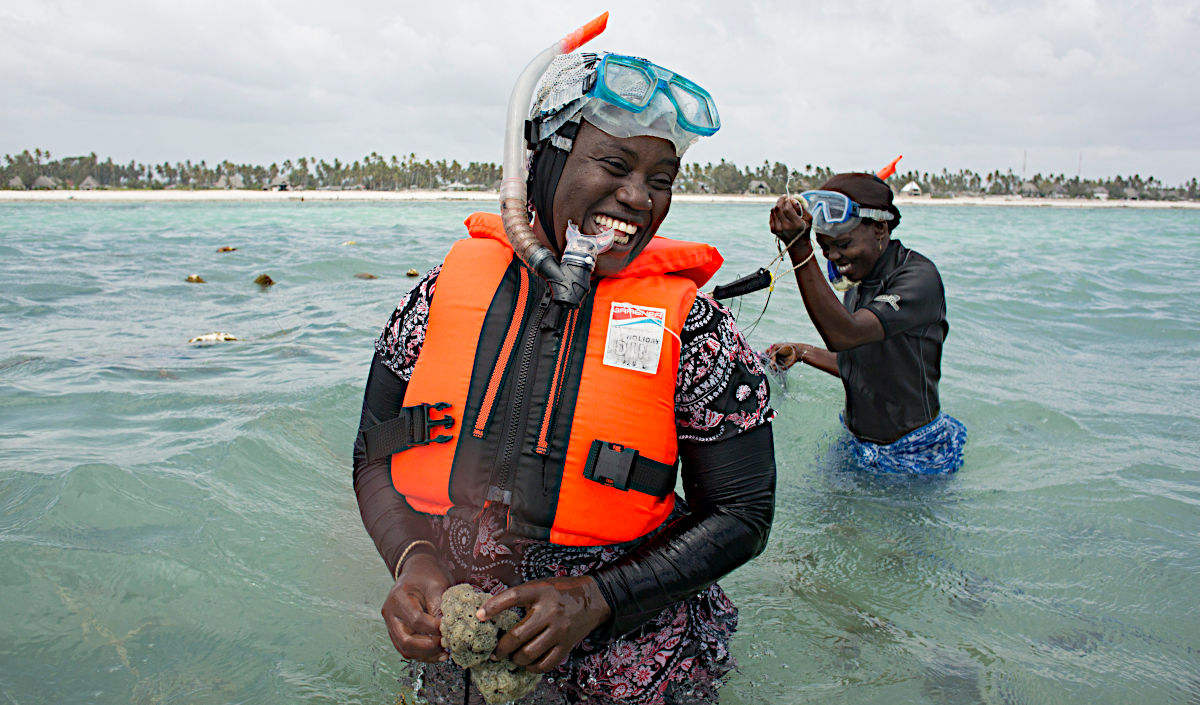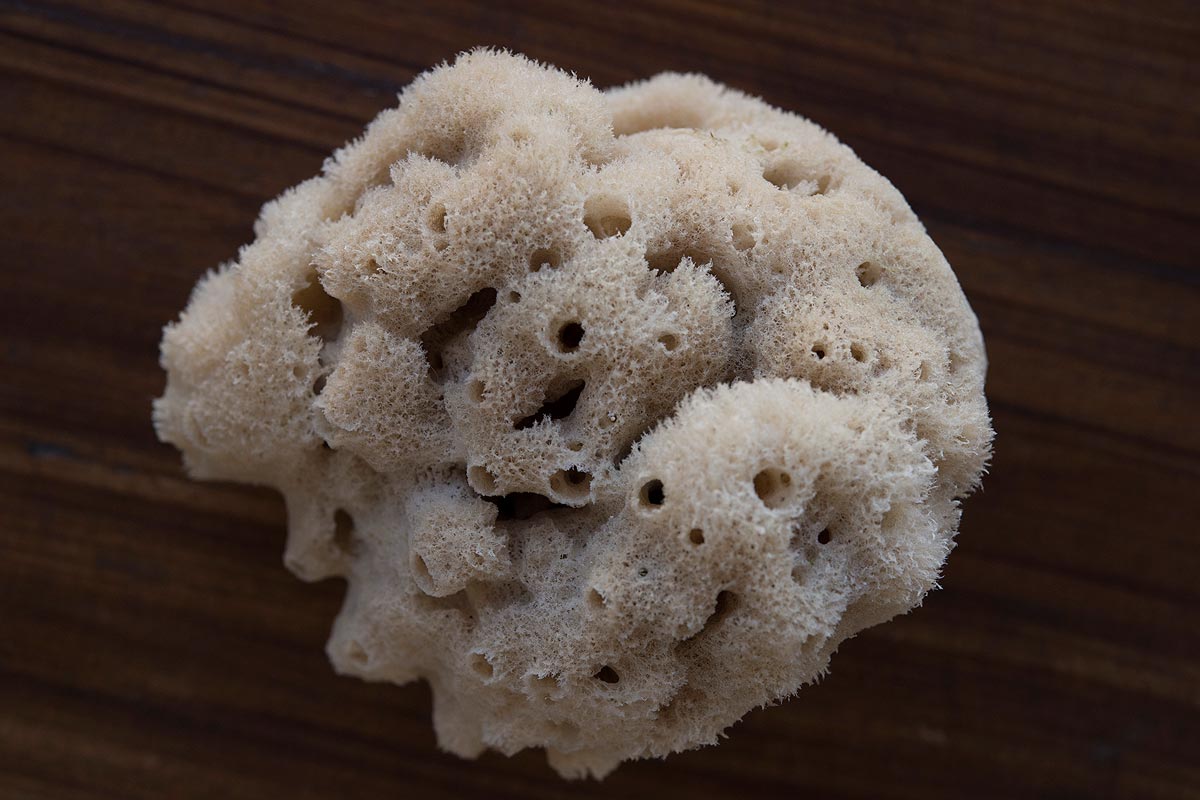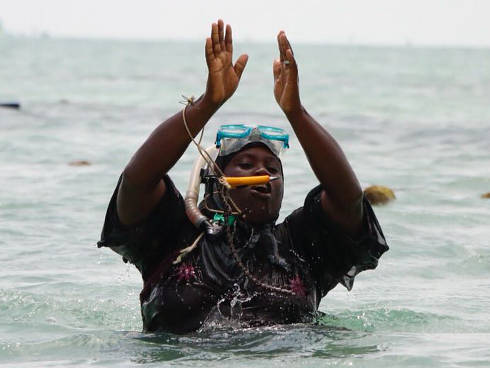“The sponges have changed my life”
Nasir Hassan Haji, sponge farmer at the East coast of Zanzibar, tells about her life and her work in the sponge farm of Jambiani.
“The new sponge farming technic really changed my life. Nowadays, life has become harder because of rising prices. With my farmed products, I can earn money. I am divorced, single mother and I really need it. The income I have now is just enough to pay the education of my children and to buy better food for all of us. Plus, I could begin the process of building my own house. The sponges have really changed my life.
Before I became a sponge farmer, I was cultivating seaweed. But seaweed does not bring enough money and sometimes the temperatures or even bacteria present a big problem.
One day, a friend of mine, who is fascinated with cultivating sea sponges, visited me and told me about the sponges. So, I said “Ok I will come and try it.” That’s how I started as a sponge farmer.
From the sponges, I get more benefits than from the seaweed. The work is less hard and I earn more income by the end of the month.
Before I go to my farm in the sea, I prepare my tools, the mask, boots and the fishing lines we use to hang up the sponges. When I arrive at my farm, I make a round, just to see if there are any problems with the sponges or the farm structure. I check the sponges for cyanobacteria or other problems. To check them carefully, I can take them out of the water.
Every sponge farmer has to check very regularly if there are algae or cyanobacteria growing on the sponges. Over a 9-month period, they have to be cleaned and trimmed to give them the perfect round shape to be commercialized. As soon as they have a certain size, they get moved to the special care lines where they are observed very carefully until they are ready to be harvested. Usually, a sponge needs one year to grow up, sometimes even more to reach the harvesting point.
When we start to prepare a new farm, we take seeds from the nursery farm, or cuttings from the trimming process. If the sponges have a high mortality rate, maybe because of cyanobacteria or other pests, we request more seeds from the nursery farm. But sometimes, it happens that the pests are already in the seed. Every harvest is a new challenge, different from the last.
I am very happy about this project, my product and having independent work. I recommend to other women to inform themselves about sponges.”
The story of Nasir comes from the movie "Bahari Salama".
Additional Information



